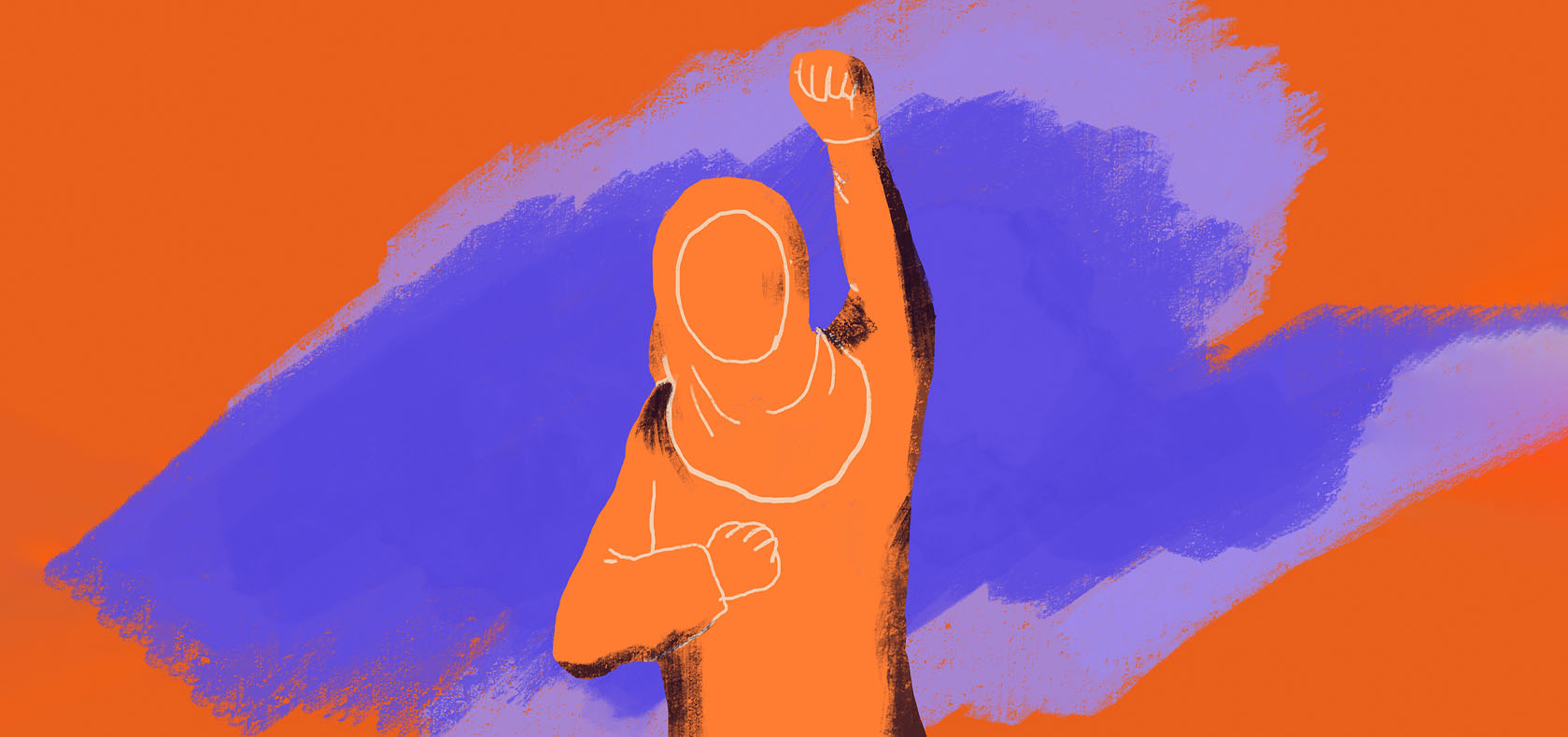Take Five: "I am also your child, and you should treat me equally."
Date:
Interviewed by Mahmudul Karim

Tosiba Akter (pseudonym), 16, is working to end violence against women and girls in Cox’s Bazar, Bangladesh. She has finished her secondary school examinations and aims to become a magistrate. She participates in UN Women’s project, Means to Lead: Empowering Rohingya Refugee and Host Community Women through Leadership, Learning, and Livelihoods, implemented by Oxfam Bangladesh. She is a member of the Girls’ Group at the UN Women Multi-purpose Women’s Centre and is mentored by staff of Mukti Cox’s Bazar, a local non-governmental organization and project implementing partner of Oxfam Bangladesh.
How do social and cultural norms affect violence against women and girls in Bangladesh?
Harmful social and cultural norms encourage violence against women and girls. Most villagers in my area believe that girls' education is not necessary and that it is pointless to spend money on it. Early marriage is preferable for girls, which relieves economic pressure on parents. According to the religious norms of my area, women and girls are supposed to stay at home. Most of the people in the area search for a female doctor when their female family members become sick, but they don’t let their girls’ become doctors. Most men believe they must control women, and men are allowed to have multiple marriages. Most of the men take dowries for marriages, and they think that they deserve it.
What can be done to change attitudes about gender equality?
We must: raise awareness among men and boys and among community and religious leaders about gender-based violence, discrimination and gender equality; build awareness of women’s education and the contributions of women to national development; promote laws and punishments against gender-based violence; and increase advocacy work.
How do you take action against gender-based violence and promote gender equality in your community?
On February 2022, I heard that one of the parents in my neighbourhood was going to arrange a marriage ceremony for their adolescent daughter without her consent. I went there and discussed with the parents the drawbacks of early marriage and government laws to prevent early marriage. I was able to stop that adolescent girl’s marriage by convincing her parents.
Later, I found out that some boys were sexually harassing that girl. As a result, her parents wanted to arrange a marriage for her. I warned those boys that if they didn't stop harassing, I would go to the police station or dial 999. Hearing my strong voice, those boys became ashamed and promised to stop teasing.
I also faced similar difficulties. My parents forbade me from attending school when I was in class 10. However, my elder brother was still going to school. I told them that your son is studying, but I am curious as to why you stopped me. I am also your child, and you should treat me equally. I also have the right to go to school. It is my human right. Then my parents were convinced that they should let me continue my studies.
How do people around you react to your activism?
At first, the people in my area criticized me. One day, one of my relatives rebuked me and asked me why I was encouraging other girls to continue their studies and refuse to get married at an early age. I discussed with him the drawbacks of early marriage, the laws of the Bangladesh Government against early marriage, and the punishment for early marriage. I also told them about the government’s helplines [999 and 109] and the services of the call centre. At any time, anyone can file a complaint against early marriage or any other problem, and the law enforcement department will take immediate action.
People bullied and criticized me for acting like a boy. My ability to go outside was restricted for a long time. Older people dislike me.
What motivated you to become an activist?
A community volunteer from Mukti Cox's Bazar chose me as a female participant for their learning session on gender equality. I watched various learning videos, stories, and session modules on gender equality and women's empowerment. When I got home from each session, I shared what I had learned with my friends and the women and girls in my neighborhood. Some of them became motivated and aware of women’s rights.